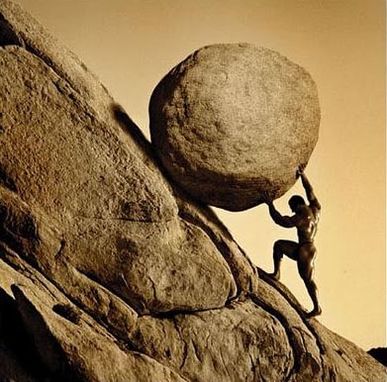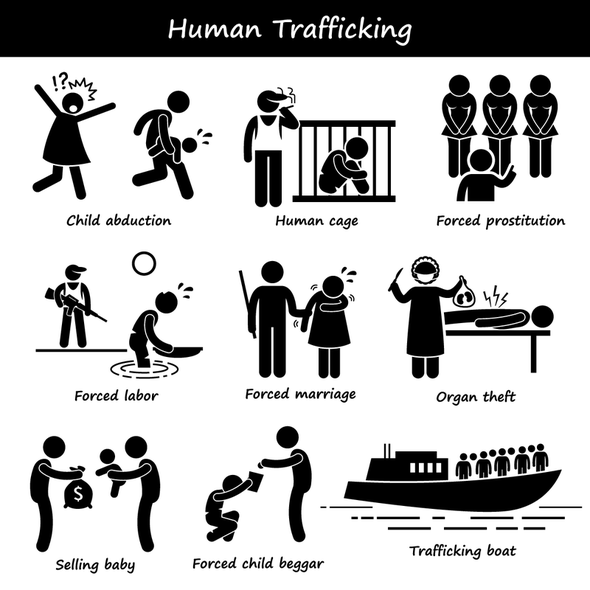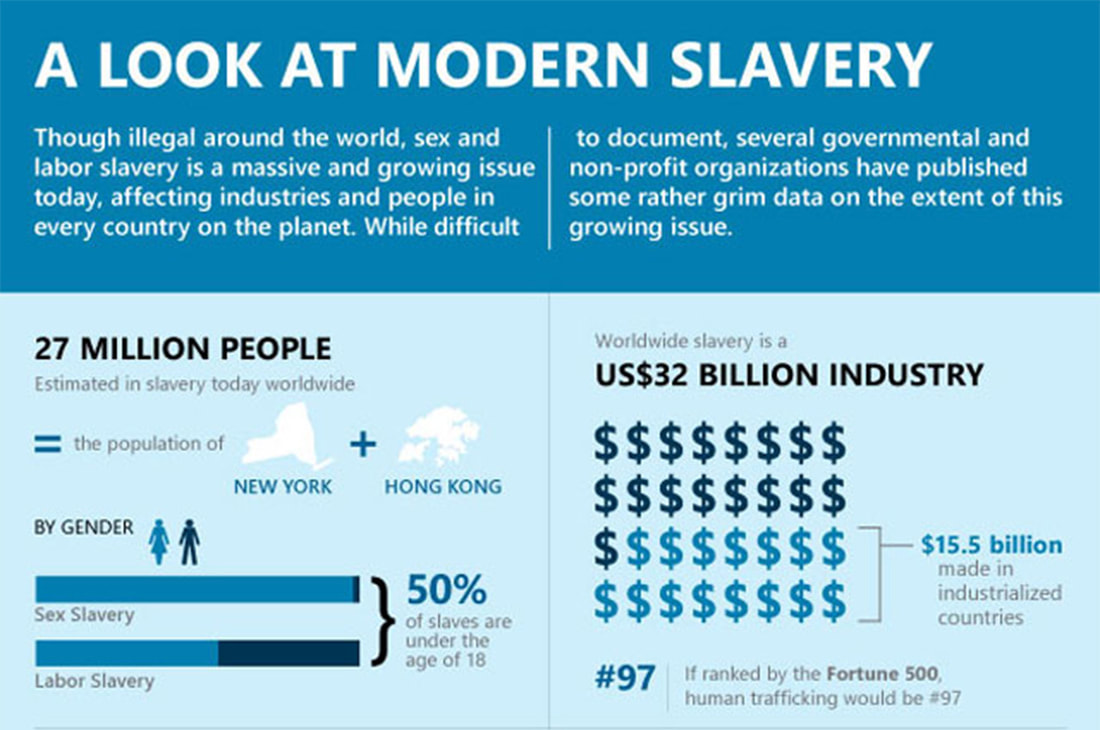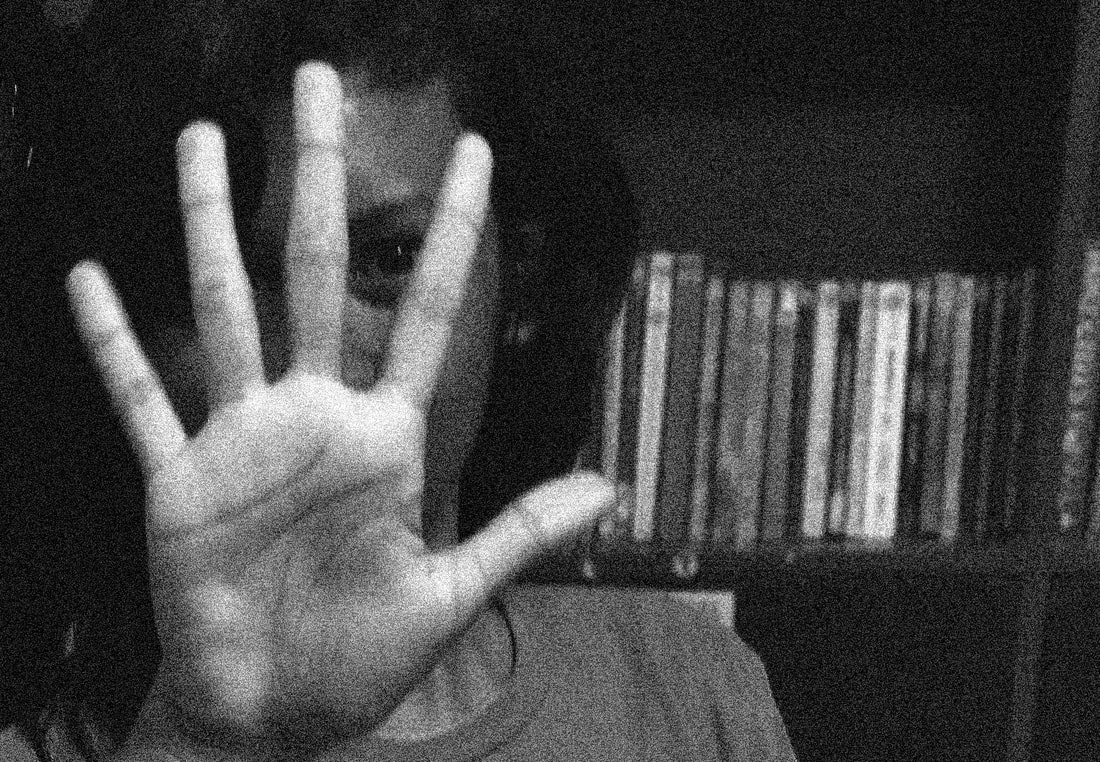By Claire DuganWe all pass the roadside billboards that say "End Human Trafficking" and "Not For Sale," but a deeper explanation of the issue of sex trafficking is hard to come by. In fact, there is only a rickety bridge of information between the billboard messages, and the dense online research articles; no scannable, marketing-style resources that can make their way more easily into the general consciousness. Sex trafficking information comes in either a light tap or a heavy downpour. So far, this blog has served to give you valuable updates on the progress of our documentary project. But we also want to add infrastructure to the bridge of information, and allow this to be a resource for those learning about what sex trafficking is, and a guide for possible steps the average person can take to help affect change on this issue. We will continue to provide updates on the ever-evolving documentary project, and on My Refuge House, and provide insights and news into the world of trafficking. Defining Trafficking So what is human trafficking exactly? Trafficking is a global slavery epidemic. It happens everywhere, in every country, every city, right under our noses. Its clutches and snares grow out of the economic issues, and gender roles of each and every culture it inhabits. But it is also very hard to define because there are so many forms of it. Where Did the Term Originate? In researching this term, it is hard to find out it's origins, as it refers to most forms of modern slavery. The broadness of the name has deterred understanding, coverage, and the political actions necessary to prevent it. The more specific term ‘sex trafficking’ may have been born of the feminist movement of the 90s as a means to help narrow down the difference between voluntary and forced prostitution. Putting a name on the coercion of women and young girls into prostitution lead to legal classifications of trafficking, which made the creation of protective laws possible. What is Sex Trafficking? Sex trafficking is a sub-category of human trafficking. It involves forced prostitution and sexual acts, mainly of women and girls, though boys are exploited too. The demand for sex workers worldwide is insatiable, and those profiting off of these crimes see an increase in demand anywhere that tourism and business grow. Though its name suggests otherwise, sex trafficking does not need to involve the transportation of it's victims to be considered trafficking. In other words, the issue of this form of human slavery is not the fact that the enslaved were moved from one place to another. The issue is their forced participation in sexual labor. Some girls have even been ‘trafficked’ and forced into prostitution while still living at home. Their silence and coercion is held in place by threats of violence against them and their families by their ‘trafficker.’ There are several ways that victims can fall into human trafficking that usually involve deception of some kind. False ads for employment are used against people in economically strained areas. Many children are deceived by close community or family members who manipulate their trust to fool them into captivity. Blake Lively recently spoke about the horrors of child sexual exploitation in a PSA/acceptance speech for Variety's Power of Women New York honoree award. Lively lays out a few ways to prevent the spread of child pornography, an issue closely related to and often stemming from trafficking. The advertising of a minor child for the purpose of a commercial sex act, as explained in Lively’s speech, is considered an act of trafficking. The preventative measures laid out can help prevent child sex trafficking, as well as helping adult victims. Along with providing escape for victims, education is the main way we can start combating these crimes. The more advocacy on the realities of trafficking from public figures, the more knowledge will spread on the issue. Educated politicians will instate laws that don’t criminalize sex workers. Educated communities and their targets will be less likely mislead by scams that would trap them in slavery. Educated citizens can start to mobilize against this issue. Here are some great resources for getting informed on sex trafficking: Polaris Project Not For Sale Campaign FBI Data & Action Do you have any questions about trafficking? Let us know in the comments below.
0 Comments
By Jennifer Huang  Sisyphus, by Gerard Van der Leun (Creative Commons License) Sisyphus, by Gerard Van der Leun (Creative Commons License) My niece, who is 14, just told me that she wants to be an entrepreneur. Why? "Because they're their own bosses!" She said. "And I want to do it all." "You don't want to do it all," I told her. "Yes I do!" I can understand her sentiment --the desire to try it all, learn it all, control it all. But I have learned very well that this is no way to run a business, or a film. The first rule of filmmaking: Get Help. Shooting and editing are just the beginning. Documentary filmmakers need to fundraise, form partnerships, network, bookkeep, maintain a web presence, develop branding, strategize distribution, write grants and scripts, communicate with their subjects, and do dozens of other large and small tasks. It's too much for one person, though many, like me, try to manage on their own. You may have noticed that one thing I need help with is blogging...! And so I am thrilled to let you know that Treeclimber Media has a new contributing blogger! Claire Dugan is a writer, an artist, and a dancer who has a passion for women's issues. I danced next to her for a year before a mutual friend pointed out that we have a shared interest and might be able to work together. (Thanks, Joyce!) She'll be posting on a variety of topics covering trafficking, women's and girls issues, and whatever she is learning about while she becomes more acquainted with the themes and issues of The Long Rescue. Her first post will bring us back to a basic question that I have neglected to address: what exactly is trafficking, anyway? I'll let you learn more about Claire in her own words. Q&A with Claire DuganQ: Where are you from?
CD: I was born in SF and raised in the East Bay. Aside from a stint in NYC, I have lived here my whole life. Q: What's your favorite sandwich? CD: My favorite sandwich happened one night about ten years ago after a long shift of work. I got home late, and my mom surprised me with a sandwich from Andronico's (RIP). I was so beat and so hungry and it was some mystical combination of mustard, turkey, cheese, and veggies on wheat. Best sandwich I've ever had. Q: What are your passions in life? What inspires you? CD: My passions always revolve around creativity. I think the non-verbal communication of art helps us reveal things that can't be shared in conversation. I'm inspired by social progress, and the learning and growth that has taken place in our society, particularly as oppressed groups now have the space to speak up and be heard. I'm inspired to help integrate these changes into a better society, and into myself. Q: Why are you interested in working on The Long Rescue? CD: Trafficking is a women's rights violation, and a human rights violation. I'm happy to lend support to the effort of this documentary to educate and spread awareness about what is going on, and how this crime affects it's victims. I'm interested in learning about this issue and excited to be able to share that learning process with others through writing about it. Q: What books, films, or art have influenced your outlook or how you do your work? CD: I studied art in college, and was very inspired by the styles surrounding the Impressionist Movement. Now I'm getting into the simplicity of graphic design and the idea of saying a lot in a simple straightforward representation. I'm not as easily inspired by books or movies - anything that makes me laugh or cry is good. Q: What is the most shocking thing you've learned so far in your first weeks of research? CD: I'm shocked about what a pulse this issue has all over the world. It's such an underground problem that unfurls into so many different surface issues and symptoms: prostitution, forced labor, child pornography, etc. These scattered issues grow from trafficking, but also obscure it as their root issue. Q: What other projects are you working on? CD: I'm currently working on a few certificates at UC Berkeley Extension, completing courses in editing and in graphic design. Q: What do you do to relax? CD: Endorphins are always a great way to relax. I love getting a good workout in a dance class. Spending time outdoors being in nature is always centering, too. Q: Where do you see yourself in five years? CD: I hope to be working in a more creative capacity to bring about positive progress in the world. How that will manifest, I have no idea, but being involved in projects like The Long Rescue is a great start! Q: What's your favorite quote or words to live by? CD: Lately it's been "I am not here for you." It's a reminder to myself to disengage from anyone who uses me or others to fuel their ego. It's something I am still learning. |
Categories
All
|





 RSS Feed
RSS Feed